Iranian Diaspora Holding Human Chains Around Globe To Support Protests
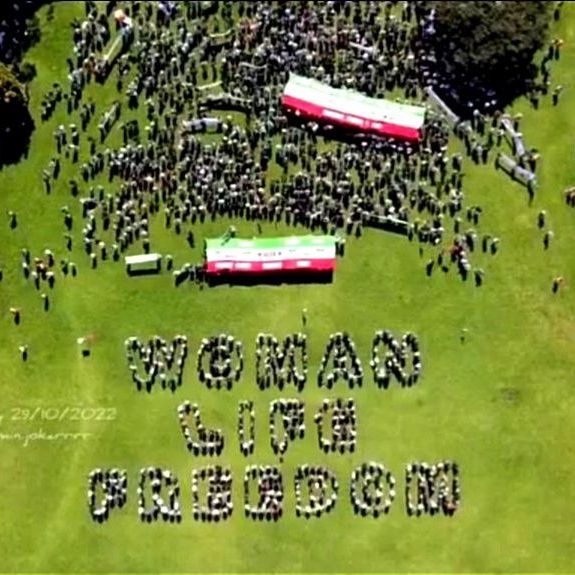
Iranian expatriate communities are holding gatherings and creating human chains in at least 80 cities as unifying gesture in support of the ongoing protests in Iran.

Iranian expatriate communities are holding gatherings and creating human chains in at least 80 cities as unifying gesture in support of the ongoing protests in Iran.
Upon a call by the Association of Families of Flight PS752 Victims, shot down by Iran’s Revolutionary Guard in January 2020, tens of thousands of members of the Iranian diaspora held long lines of people holding each other's hands to express solidarity with the people of Iran, who are holding daily protest rallies since mid-September when 22-year-old Mahsa Amini was killed in custody of hijab police.
In some cities the lines are hundreds of meters long but in cities with a large Iranian population the lines are expected to extend to over 10 kilometers.
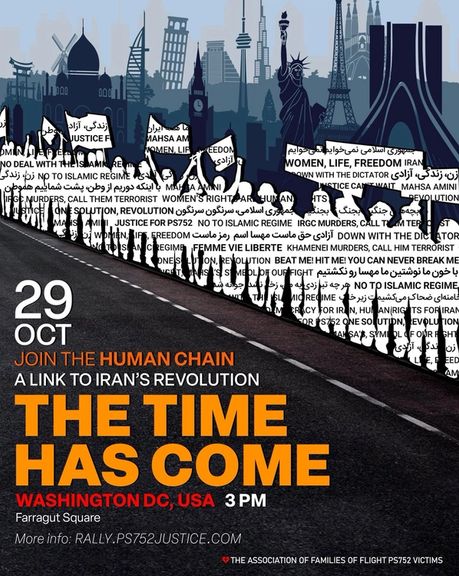
The main organizer of the global event, Hamed Esmaeilion -- the Canada-based activist who lost his wife and daughter in the downing of the Ukrainian Airlines flight – has spearheaded several international events in support of the protests.
Last Saturday, October 22, a huge gathering of Iranians, estimated to be over 100,000 people, took to the streets in the German capital Berlin to support their fellow-countrymen struggling against government brutality.
On October 1, Iranian diaspora communities and human rights activists launched unprecedented rallies in over 150 cities throughout the world against the Islamic Republic.
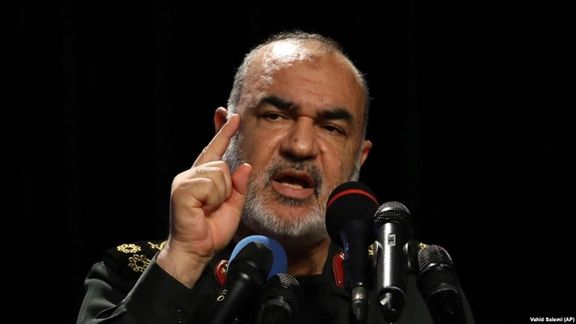
Commander of Iran’s Revolutionary Guard has threatened people not to take to streets anymore saying that Saturday is the day that protests will be over.
During a speech at the funeral of those killed in an attack on a shrine in the city of Shiraz, Hossein Salami claimed that young Iranians are deceived but they must not sell their honor to America.
“Take off the uniforms of the American army,” stated Salami.
The Islamic Republic routinely blames most economic and political problems on enemy plots, meaning primarily the United States and also Israel and often European countries such as Britain and France
Elsewhere in his remarks the hardliner IRGC commander addressed young Iranian protesters saying that “Some of you may think this isn’t an American plot. But don’t think Joe Biden, General Martin Dempsey, Frank McKenzie, Benny Gantz, Naftali Bennett, Yair Lapid or Mohammed Bin Salman would call you on your phone and ask you to pour into streets. No! They do it through their media.”
Salami also urged the students not to turn universities into a “battlefield for America against the nation.”
In November 2019 when protests suddenly erupted in the country, the IRGC immediately resorted to large scale killing of protesters using military weapons often at close range. At least 1,500 people died, and thousands arrested. This time there has been less use of assault rifles and machine guns against protesters, but shotguns and beatings have killed around 270.
With Salami’s warning, the concern now is that the IRGC will soon resort to fill military intervention against unarmed protesters as a desperate measure against the longest-running daily protests in the 43-year history of the clerical regime.
The Islamic Republic calls the United States its arch enemy and refused to meet American diplomats in direct negotiations during 17 months of nuclear talks from April 2021 to August 2022.
Salami’s statements regarding an end to demonstrations came at a time when students have been staging more protests at different universities on Saturday blaming the IRGC for the Wednesday attack on a Shia shrine in Shiraz in which over a dozen lost their lives and many more injured.
Students chanted slogans against Supreme Leader Ali Khamenei and the IRGC forces during their gatherings saying that they are “murderers”.
There are also signs that older Iranians have started joining the protests and the regime has begun to fear the wrath of the people who this time clearly have one demand: regime change. They are not asking for reducing the 40-percent inflation rate or lifting the mandatory hijab rule. They are openly demanding a different kind of government.
The regime still has its supporters who are either religious or receive benefits from the government. But they seem to be in a minority.
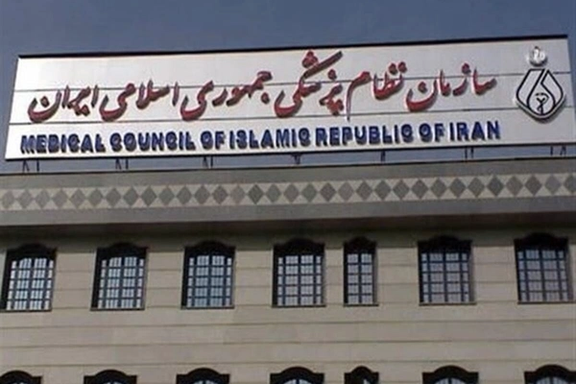
Reports received by Iran International say during the protests by doctors in Tehran on Tuesday, October 25, a general surgeon was shot in the head and killed by the security forces.
Doctor Parisa Bahmani, from Zanjan, was killed during the gathering of doctors in front of Tehran Medical Council, after government forces opened fire on demonstrators, Iran International has learned.
Following the announcement of her death, doctors held another round of protests outside the buildings of the Medical Council of the Islamic Republic across Iran on Saturday.
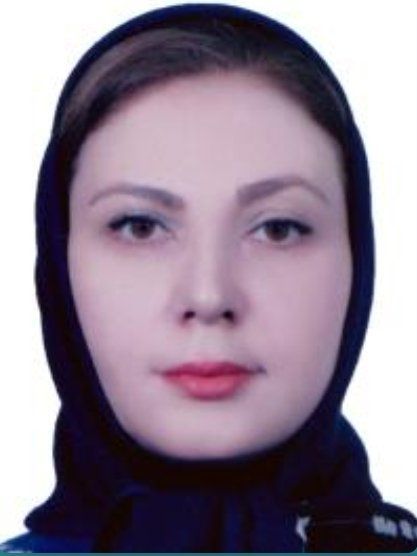
Doctors held a protest rally on October 25 against the government’s policies of preventing medical care for the wounded protesters, using ambulances to transport security forces, and militarizing the hospitals.
According to information received security forces have put pressure on the victim’s family to deny her participation in the protest rally.
Earlier, Iran’s Medical Council announced Dr. Parisa Bahmani, a general surgery specialist, “died in a car crash and the news regarding her killing by security agents is not true. However, the death of Dr. Bahmani in under investigation and the result will be announced soon.”
Up to now, the Islamic Republic has not taken responsibility even for a single death during the demonstrations.
Iran’s government either says the dead people have jumped off the roofs, committed suicide, had some background disease, or lost their lives in car crashes.
The regime has killed over 250 people including tens of children during the protests since mid-September.

The United States will next week launch an initiative at the United Nations over human rights violations in Iran, Reuters reported Friday.
The news agency said it had seen a note referring to an “informal UN Security Council gathering” held by the US and Albania, which currently sits on the council. Iranian Nobel Peace Prize laureate Shirin Ebadi, actress Nazanin Boniadi, and Javaid Rehman, the UN Special Rapporteur on human rights in Iran,are due to address the gathering, which will be open to state representatives and human rights organizations.
The meeting, Reuters reported, was intended to “highlight the ongoing repression of women and girls and members of religious and ethnic minority groups in Iran,” and would “identify opportunities to promote credible, independent investigations into the Iranian government's human rights violations and abuses.”
The administration of President Joe Biden has been criticized by some Iranian opposition groups over an alleged lack of support for recent protests in Iran or for not ending diplomatic contacts with Tehran. A petition calling for the removal of Rob Malley as the White House’s special Iran envoy has attracted 115,000 signatures.
Some exiled activists have long identified with the Republican Party, which might be seen an area of weakness by Biden’s Democrats as the November 8 Congressional elections approach. But any emphasis on human rights is a double-edged sword. Some Middle-East-focused rights advocates have argued that Biden’s approach to Saudi Arabia over cuts in oil production betrayed a lack of interest in holding Riyadh accountable for human rights abuse.
Iran’s mission to the United Nations in New York this week accused the United States of “hypocrisy, use of a double standard, and selective application of human rights” to their extent that American claims “to support Iranian women to be deceptive and lacking in good faith.”
‘Political sanctions’?
The UN approach to human rights has not been without its own controversy. Ebadi, who left Iran 2009, said in April that Alena Douhan, the UN Special Rapporteur on unilateral coercive measures (‘UN speak’ for sanctions), should not visit Iran unless Tehran also agreed to a visit by the human rights rapporteur Rehman, who has not been allowed into the country. Ebadi in 2018 expressed opposition to US economic measures that penalized the general population and argued instead for targeted ‘political sanctions.’
Douhan issued a report in September, after a visit to Iran, arguing that US sanctions should be lifted due to their impact on the “broad spectrum of human rights” including “the right to life and the right to development.” The report said the delivery of medicines and medical equipment to Iran was “severely undermined” by Washington’s sanctions on finance, trade, shipping and insurance, although humanitarian trade is not sanctioned and Iran imports around $1.5 billion of medicines a year.
The role of Albania in calling the UN gathering will also be noted in Tehran, given Albania has hosted the Mujahideen-e Khalq since 2013, when the US relocated the Iranian opposition group from Iraq, where it had been stranded by the demise of its ally Saddam Hussein. The US Deputy National Security Advisor Jon Finer this week reaffirmed US support for Tirana, including improved “cybersecurity in the face of repeated, disruptive cyber-attacks by Iran.”
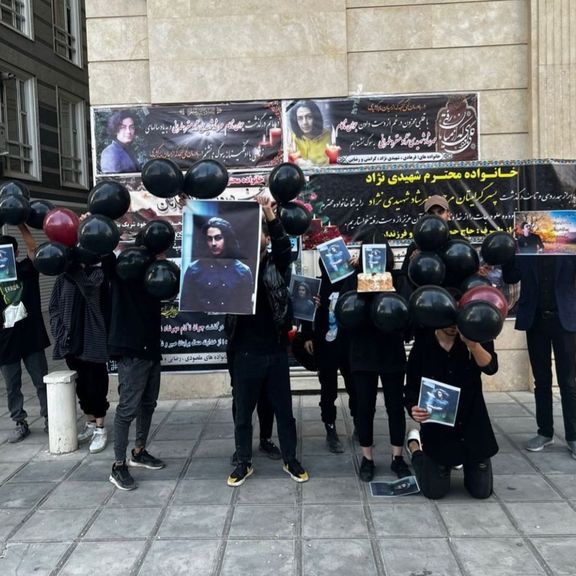
A large crowd in the central city of Arak attended the funeral of Mehrshad Shahidi, a 20-year-old chef who was killed by the Revolutionary Guard forces on October 25.
Mehrshad Shahidi was arrested October 25 during antigovernment protests and beaten to death with baton at the IRGC Intelligence’s detention center.
Security forces have reportedly fired tear gas to disperse the mourners who were chanting “Everyone who is killed will be supported by thousands more,” and "We don’t want, we don’t want the Islamic Republic.”
Iranian authorities have denied any responsibility in Shahidi’s death claiming that they will announce the cause of his death later.
Chief Justice of the province Abdolmehdi Mousavi said on Friday that “there are no signs of fractures in the arms, legs, skull, or any brain injury.”
Meanwhile, Deputy Governor of the province, Behnam Nazari alleged that “the rumors are being spread by anti-Iran media, but no bullets have been shot at Mehrshad Shahidi.”
Funerals and memorial ceremonies have become occasions for more protests and new violence by security forces.
The Norway-based Iran Human Rights organization says at least 253 people including 34 children have been killed by the Iranian security forces during the nationwide protests so far.
According to the organization, on Thursday and Friday alone, at least 16 people, including 4 women, were killed by regime forces in different cities, particularly in Kurdish regions.
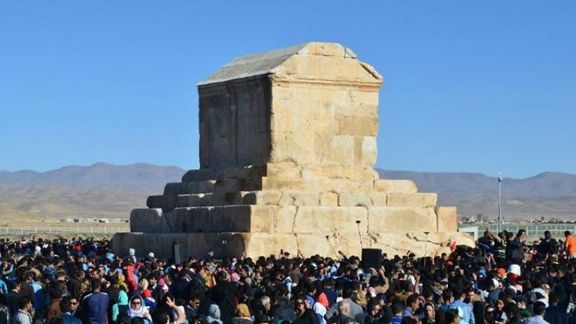
The Islamic Republic has banned people from visiting the Pasargadae and Persepolis, ancient sites dating back to Achaemenid Empire on Cyrus the Great Day, in fear of antigovernment protests.
Ordered by the Islamic Republic’s Supreme National Security Council, the Cultural Heritage Organization announced the three-day ban effective until after Saturday, October 29, which is considered by some historians as the death anniversary of Cyrus the Great, the founder of the first Persian empire the Achaemenids.
To commemorate the king, many Iranians visit the Tomb of Cyrus on October 29, a mausoleum located in Pasargadae archaeological site as well as Persepolis, the ceremonial capital of the Achaemenid Empire, in the southern Fars province.
In recent years, the Islamic Republic implemented security measures and even blocked roads leading to Pasargadae and Persepolis to prevent people from visiting the ancient sites or celebrating the occasion, considered as symbols of monarchy by the clerical regime.
The measures were especially intensified since October 2016, when thousands of people gathered at the historical site and chanted antigovernment slogans such as "Iran is our homeland, Cyrus is our father." During and following the event, security forces arrested several people and the prosecutor of Shiraz, the provincial capital, announced "judicial cases" against the organizers.
Iran is engulfed in unrest as people are holding daily protests against the Islamic regime since the death of 22-year-old Mahsa Amini, who died in custody of the hijab police.